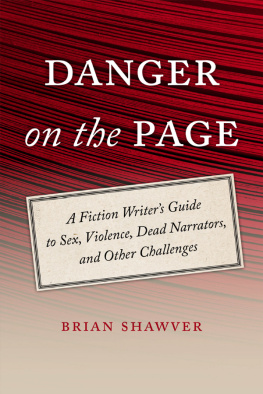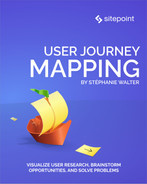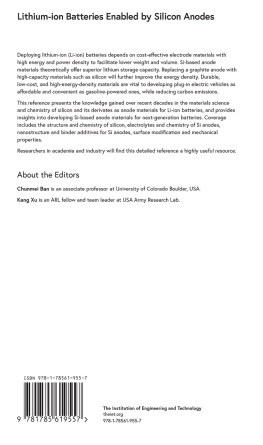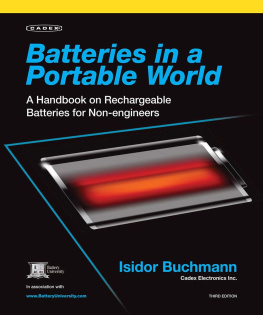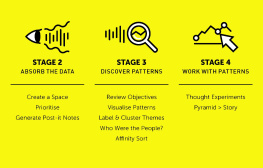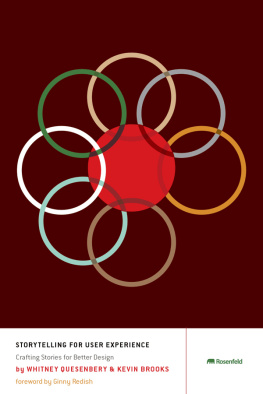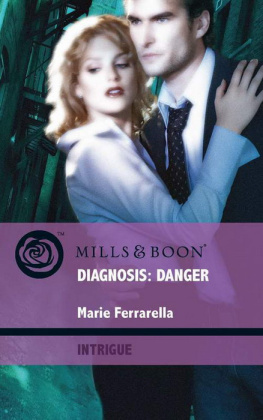Portigal - Doorbells, danger, and dead batteries : user research war stories
Here you can read online Portigal - Doorbells, danger, and dead batteries : user research war stories full text of the book (entire story) in english for free. Download pdf and epub, get meaning, cover and reviews about this ebook. year: 2016, publisher: Rosenfeld Media, genre: Home and family. Description of the work, (preface) as well as reviews are available. Best literature library LitArk.com created for fans of good reading and offers a wide selection of genres:
Romance novel
Science fiction
Adventure
Detective
Science
History
Home and family
Prose
Art
Politics
Computer
Non-fiction
Religion
Business
Children
Humor
Choose a favorite category and find really read worthwhile books. Enjoy immersion in the world of imagination, feel the emotions of the characters or learn something new for yourself, make an fascinating discovery.

- Book:Doorbells, danger, and dead batteries : user research war stories
- Author:
- Publisher:Rosenfeld Media
- Genre:
- Year:2016
- Rating:5 / 5
- Favourites:Add to favourites
- Your mark:
- 100
- 1
- 2
- 3
- 4
- 5
Doorbells, danger, and dead batteries : user research war stories: summary, description and annotation
We offer to read an annotation, description, summary or preface (depends on what the author of the book "Doorbells, danger, and dead batteries : user research war stories" wrote himself). If you haven't found the necessary information about the book — write in the comments, we will try to find it.
Portigal: author's other books
Who wrote Doorbells, danger, and dead batteries : user research war stories? Find out the surname, the name of the author of the book and a list of all author's works by series.
Doorbells, danger, and dead batteries : user research war stories — read online for free the complete book (whole text) full work
Below is the text of the book, divided by pages. System saving the place of the last page read, allows you to conveniently read the book "Doorbells, danger, and dead batteries : user research war stories" online for free, without having to search again every time where you left off. Put a bookmark, and you can go to the page where you finished reading at any time.
Font size:
Interval:
Bookmark:
USER RESEARCH WAR STORIES
Steve Portigal

Doorbells, Danger, and Dead Batteries
User Research War Stories
By Steve Portigal
Rosenfeld Media, LLC
457 Third Street, #4R
Brooklyn, New York
11215 USA
On the Web: www.rosenfeldmedia.com
Please send errors to:
Publisher: Louis Rosenfeld
Managing Editor: Marta Justak
Interior Layout Tech: Danielle Foster
Cover Design: The Heads of State
Indexer: Marilyn Augst
Proofreader: Sue Boshers
2016 Steve Portigal
All Rights Reserved
ISBN: 1-933820-34-9
ISBN-13: 978-1-933820-34-7
LCCN: 2016955132
Printed and bound in the United States of America
This book is dedicated to Anne, Sharna, Cheryl, Bruce, Talia, and Arianna who fill my life with a bounty of story-worthy experiences.
The stories in this book will appeal broadly, but the lessons these stories offer are most valuable to people in the world of product development who spend time talking to users. Researchers, designers, product managers, software developers, marketers and beyondanyone who is learning from people in order to do a better job at creating a thing should read this book. While someone with more experience interviewing users will likely see more connections to their own experience, the lessons here for doing better research are valuable to anyone who doesor will douser research.
Each chapter deals with one challenging aspect of user research. A chapter begins with an overview of the topic and is then illustrated by several different war stories by different authors. The chapter concludes with a list of takeaways that show you how to apply the lessons of the stories to your own user research practice.
This books companion website ( http://rosenfeldmedia.com/books/user-research-war-stories/ ) contains a blog and additional content. The books photos are available under a Creative Commons license (when possible) for you to download and include in your own presentations. You can find these on Flickr at www.flickr.com/photos/rosenfeldmedia/sets/ .
http://rosenfeldmedia.com/books/user-research-war-stories/ ) contains a blog and additional content. The books photos are available under a Creative Commons license (when possible) for you to download and include in your own presentations. You can find these on Flickr at www.flickr.com/photos/rosenfeldmedia/sets/ .
War stories are personal accounts of the challenges researchers have out in the field, where mishaps inevitably occur. The term originated around 1839 and is used broadly to describe the types of stories shared across many professions and communities, not just warriors and user researchers.
There is a lot of material about the right way to do user research. But, in reality, sometimes things do go wrong (or to be precise, differently than intended). Theres a lot to be learned from what actually happens, warts-and-all. With this insight, you might be able to prevent something unwanted from happening in the future, or at least have a better way of dealing with it the next time it comes up.
While there are a lot of stories here, they are mostly pretty short, so you could binge-read them if you chose, but its probably better to take it one chapter at a time. This gives you the opportunity to digest and reflect before diving in again.
Yes. The original archive is at www.portigal.com/category/series/warstories , and it includes stories that arent in this book. As people contribute new stories, theyll be posted at that link, and at this books companion website ( http://rosenfeldmedia.com/books/user-research-war-stories/ ).
http://rosenfeldmedia.com/books/user-research-war-stories/ ).
Yes, please! You can email story pitches to . Remember, these are stories about fieldwork (not about focus groups or usability tests). These stories are not about your research findings, but rather the kind of experiences that you have. Stories dont need to include company or client names.
Chauncey Wilson: Secrets, Security, and Contextual Inquiry
Dan Soltzberg: Focus, No Matter What!
We all love war stories. We love their two axiomatic narrative arcs: the protagonist having it all, losing it all, and then getting some of it back, along with a pile of redemption. We love the protagonist who has nothing, quests for something, finds it, and then invariably realizes that she or he was better off at the beginning. In fiction, these plots are predictable, but in real life, much less so. In real life, the tale is a precipitate that forms over time... precisely through its retelling.
In this book, Doorbells, Danger, and Dead Batteries: User Research War Stories, Steve Portigal assembles an impressive platoon of these tales. But Steve is also an expert observerindeed he does this for a livingso his gift in organizing and pulling out common threads throughout the book helps the reader make sense of these stories. Each section is bookended with an incredibly wise setup and useful takeaway, but he also provides permission for some dangling threadsacknowledging the temptation to slap a pretty bow on every anecdote. Rather, he provides permission to be okay with some lack of resolution.
War stories, as stories, contain all the usual tropes we see in good stories, but these stories are authentically unpredictable. And its only in hindsight that they earn their stripesto keep the metaphorto be recounted, reexamined, and retold.
There are other military metaphors to explore as well. I personally have a hard time reconciling the notion of rules of engagement in the actual war arena, but certainly in the world of design that forms the scaffolding for the stories in this book, there are very clear rules of design engagement. Design research, user research, ethnographythese are all pretty mature disciplines at this point, with prescribed methods, best practices, and a more-or-less-agreed-upon moral code for working with human subjects. When things go wrong in this arena, well, they can go very wrong indeed.
Theres also the badge of honor that people with war stories earn. Theyd argue that you have to go through something to earn the medal (versus going around or over it), and theyd be right. Triumphing over adversity, or handling yourself gracefully when things go wrong, or just improvising in the moment can be hugely satisfying. In fact, its in the retelling of the war story where the ultimate satisfaction (and sometimes the revenge!) actually lies. Like any retelling of a story, it usually gets better with age: the pacing improves, the extraneous details get excised as the critical ones sharpen up, and the whole thing just gets polished until the war story itself becomes a kind of crafted object. And abstracted from the event that birthed it, the story itself becomes more powerful. And worthy of collecting.
So we are grateful to Steve Portigal for assembling such a rich breadth of tales in his book. Throughout, he talks about the power of these storiesto instruct, to serve as catharsis, to entertain, to inspire. This book certainly delivers on all of these. Its hysterical, its heartbreaking, and in the end its, well, a triumph. And thats how wars are supposed to end, right?
Font size:
Interval:
Bookmark:
Similar books «Doorbells, danger, and dead batteries : user research war stories»
Look at similar books to Doorbells, danger, and dead batteries : user research war stories. We have selected literature similar in name and meaning in the hope of providing readers with more options to find new, interesting, not yet read works.
Discussion, reviews of the book Doorbells, danger, and dead batteries : user research war stories and just readers' own opinions. Leave your comments, write what you think about the work, its meaning or the main characters. Specify what exactly you liked and what you didn't like, and why you think so.

